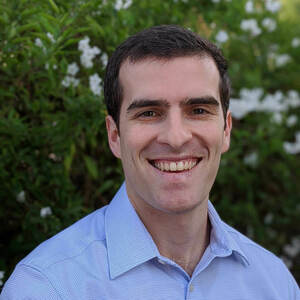Faculty Luncheon: "Hybrid Bronzes: Organic-Inorganic Metal Oxides with Tunable Structural and Electronic Properties" by Adam Jaffe

ND Energy Faculty Luncheon Seminars are held monthly with interested faculty to facilitate cross-disciplinary research collaborations and to enable development of proposal ideas for upcoming funding opportunities. All interested faculty from diverse fields are invited to attend.
The discussion topic for this luncheon will be centered around a presentation by Prof. Adam Jaffe on "Hybrid Bronzes: Organic-Inorganic Metal Oxides with Tunable Structural and Electronic Properties."
This 35-40 minute talk will be followed by discussion with Prof. Jaffe focused on (1) cross-disciplinary basic research needs, (2) potential avenues for external and internal collaborations, (3) funding sources to target, and if everyone is agreeable, (4) 'follow-up actions' that we can track. With all the faculty engaging in the discussion part of this luncheon after the talk, we expect to have a very stimulating and inspiring exchange of ideas.
For more information on the ND Energy Faculty Luncheon Seminars, contact Subhash L. Shinde at sshinde@nd.edu.
Abstract
The Jaffe group develops hybrid materials as functional platforms that combine the synthetic control of molecular chemistry with the robust structural and electronic properties of crystalline inorganic solids. We emphasize the relationships between structural and electronic properties of materials to help address key challenges in energy storage, catalysis, and optoelectronics. Our work spans from synthesis to application of hybrid and solid-state materials, and we specialize in characterization through crystallography, vibrational and electronic spectroscopy, electrochemistry, and in situ high-pressure diamond-anvil cell techniques. This talk will outline our group's efforts to develop hybrid bronzes that incorporate inorganic layered components with similar electronic structures and capacity for free carrier concentrations as bronze-type metal oxides, stabilized by ordered arrays of organic or organometallic species that can impart greater structural and chemical versatility. This work aims to (1) explore the synthetic and post-synthetic control of the hybrids’ structural and electronic properties and (2) use this fundamental insight to direct their property-tuning as functional materials.
Biography
Adam Jaffe received his A.B. degree in chemistry summa cum laude from Princeton University, where he worked with Prof. Andrew Bocarsly to develop anodic catalysts for ethanol fuel cells. Adam also researched phosphors for solid-state lighting at the Materials Research Laboratory of UC Santa Barbara with Prof. Ram Seshadri and metal–organic frameworks for gas storage at Seoul National University with Prof. M. P. Suh. Adam received his Ph.D. in Inorganic Chemistry from Stanford University, working with Prof. Hema Karunadasa. There he studied structural and electronic property relationships in hybrid materials, including their high-pressure behavior—working closely with Dr. Yu Lin and Prof. Wendy Mao—as well as their optoelectronic properties and energy-storage capabilities. Adam then completed an NIH postdoctoral fellowship with Prof. Jeffrey Long at UC Berkeley, studying redox-active metal–organic frameworks for separating oxygen from air. Adam joined the Department of Chemistry and Biochemistry at the University of Notre Dame as an Assistant Professor in July of 2021. His group focuses on synthesizing new hybrid materials and elucidating their structure-property relationships.